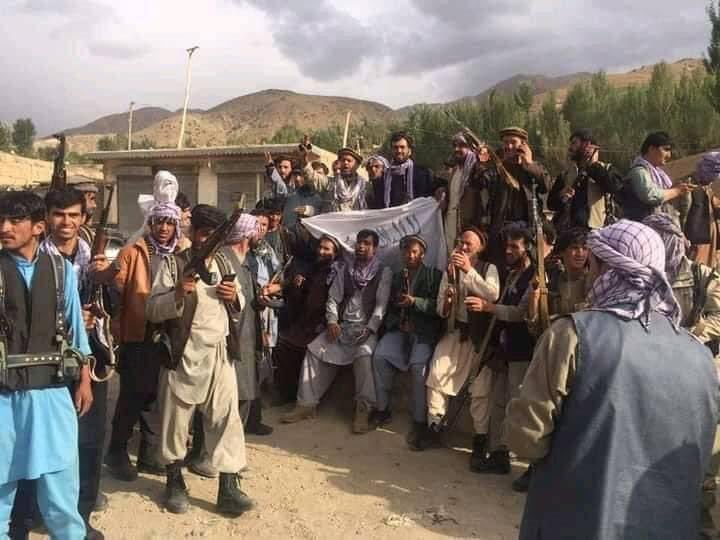Panjshir’s Resistance Digs In, But Still Willing To Negotiate
Anti-Taliban resistance fighters based in Afghanistan’s Panjshir Valley claim to have fought off Taliban fighters attempting to advance into the valley, as the Taliban claims to be sending in reinforcements to surround the region.
Ali Nazary, head of foreign relations for the National Resistance Front of Afghanistan (the Panjshir resistance’s official name), told the Financial Times that fighting broke out on Sunday night, but Taliban forces had been forced to retreat. Pro-Taliban social media accounts had previously shared photographs and videos of Taliban fighters headed towards the valley, after resistance fighters claimed to have captured Andarab, Dih Hasar and Puli Hisar districts in the neighboring Baghlan province over the weekend.
The Taliban claims to have since recaptured the districts and that they have besieged the valley on three sides, although pro-resistance social media accounts instead claim that an ambush on Taliban reinforcements resulted in the death of 300 Taliban fighters and the capture of more. Civilians are now said to be fleeing the contested districts amidst allegations that Taliban fighters have taken civilian hostages, in particular children whose parents are accused of links to the resistance movement.
Former Afghan Vice President Amrullah Saleh, who fled to Panjshir following the fall of Kabul, said on Twitter that “Talibs have massed forces near the entrance of Panjshir a day after they got trapped in ambush zones of neighboring Andarab valley & hardly went out in one piece”. He stated that the highway through the Salang Pass connecting Panjshir to Kabul had been blocked by resistance fighters, noting that “there are terrains to be avoided”.
Saleh, who hails from Panjshir, had declared himself the acting President of Afghanistan on 17 August, following news that President Ashraf Ghani had fled the country. The former intelligence service chief has been joined by remnants of the Afghan National Army who regrouped in the valley after escaping following the collapse of Ghani’s government and various surrender deals, with members of the Afghan Army’s special forces units among them.
Publicly, however, the resistance is led by Ahmad Massoud, son of famed anti-Soviet and anti-Taliban leader Ahmad Shah Massoud. In a Washington Post opinion piece, Ahmad called for support from Western governments, warning that “the Taliban is not a problem for the Afghan people alone” as a Taliban-ruled Afghanistan would “become ground zero of radical Islamist terrorism”. Similarly, French philosopher Bernard-Henri Lévy has rallied behind Massoud, saying that the “resistance has just begun”, as well as publishing a letter from Massoud to him calling for the influential public intellectual to help secure French support.
While Ahmad has said that he is open to negotiations with the Taliban, Nazary has stated to AFP that a peace deal would require decentralisation, a system that ensures social justice, equality, rights, and freedom for all. Nazary explained to the BBC that “Afghanistan is a country made up of ethnic minorities, no one is a majority. It’s a multicultural state, so it needs power sharing,” concluding that a “deal where everyone sees themselves in power” is needed. However, he also stated that sincerity would be needed in negotiations, failing which the thousands of fighters with the resistance would be ready to fight back against any aggression.

